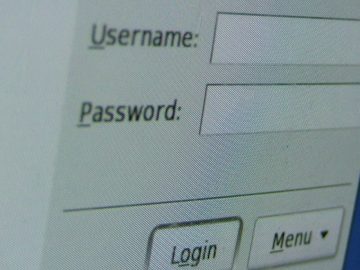Can Identity Theft Protection Services Protect You from Hackers?

It's Wednesday evening, and you receive a phone call from Granny who was watching the news when she saw cybersecurity experts talk about identity theft protection. Granny knows little about computers, but she's aware that you spend a lot of time online, and she's worried that you might have forgotten about the identity theft protection thing the people on TV are talking about. To calm her down, you say that you know how to take care of yourself, and you change the subject. When you hang up, however, you realize that while you have heard of identity theft protection services, you're not completely sure how they work. And that's how you ended up on this page. Let's get on with it.
Knowing what identity theft protection services do is very important. Let's begin by saying what they don't do, though.
You could argue that the choice of the word "protection" is somewhat questionable because "protection" involves preventing something from happening. Identity theft protection services can't stop hackers from stealing your information. This is not how they work. In that sense, it can be argued that identity theft protection services don't actually protect your private information. Their tasks can be roughly divided into two sets: Monitoring and Responding.
Table of Contents
Monitoring
Cybercrooks have stolen your personal information, and they can do a number of things with it. Identity theft protection providers use many channels to ensure that when the criminals act, you have the opportunity to react.
They'll monitor social media platforms to ensure that no fake profiles with your name appear. They'll watch for any court records or other documents with your name on them. Good identity theft protection services will also watch for any change of address requests which could redirect important mail away from you. Impersonating someone can have all sorts of repercussions for the victim, and if crooks really want to make your life miserable, they'll do it. Usually, however, they're too thick-skinned to care about how you feel. In most cases, they just want to take some money that doesn't belong to them and be done with it. Once again, identity theft protection services could help.
They'll keep an eye on your records at the big credit reporting agencies. They'll see when someone tries to loan money, issue a credit card, file for bankruptcy, or change your personal data on your behalf. They'll also watch for companies checking out your credit history and debt collectors declaring that you're late with your payments. If all goes to plan, as soon as one of these things happen, the identity theft protection service will inform you, and you can move on to the next step.
Responding
Quick response is essential when someone is trying to misuse your personal data, and the providers of identity theft protection services are supposed to facilitate this response. They have experts that will help you reach out to the relevant institutions and inform them that someone is trying to impersonate you. They'll take care of the legal stuff, and they'll hopefully cut through the red tape much more quickly than you would on your own.
Do you need identity theft protection?
This depends on your threat profile. If you fear that your personal data has ended up in the wrong hands, and if you think that someone is about to misuse it, then yes, you should probably think about getting in touch with an identity theft protection provider. Make sure you shop around, though.
There is no standard set of services that you'll receive with your identity theft protection. Different providers do things differently, and you need to make sure that you're aware of what you'll receive for your money.
If you feel that you're not in immediate danger, you probably don't need to set aside a monthly budget for identity theft protection services. There are a few habits you can adopt, however, that would give you an early enough warning in case the worst happens.
Regularly reviewing your bank statements and keeping a close eye on your credit reports are obviously a good way of finding out that crooks are trying to harm you financially. Looking for something suspicious in your email inbox, social media profiles, and even your snail mail is also a good practice and will give you a heads-up if things go wrong. And by being careful with the data you share, you can minimize the chances of things going wrong in the first place.
Identity theft is a serious crime, the consequences of which should not be underestimated, and companies make money out of limiting the damage. They can't provide the magic bullet, though. Your personal habits are just as important.








